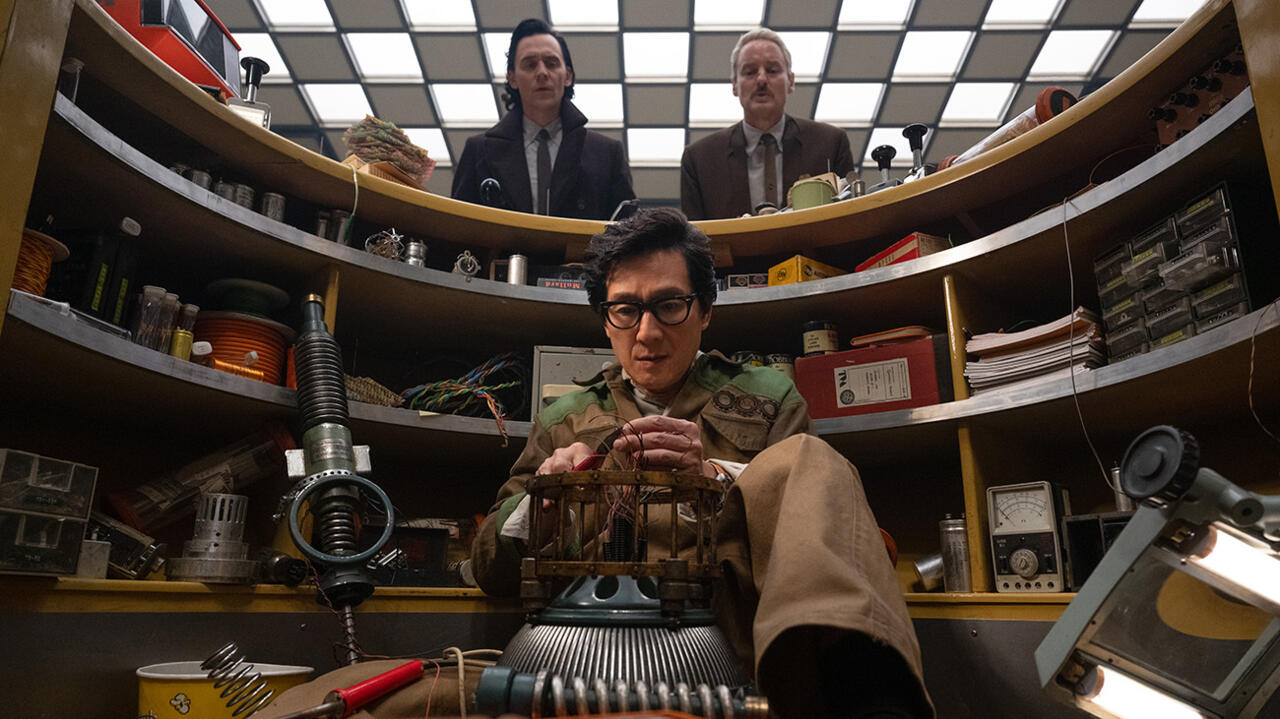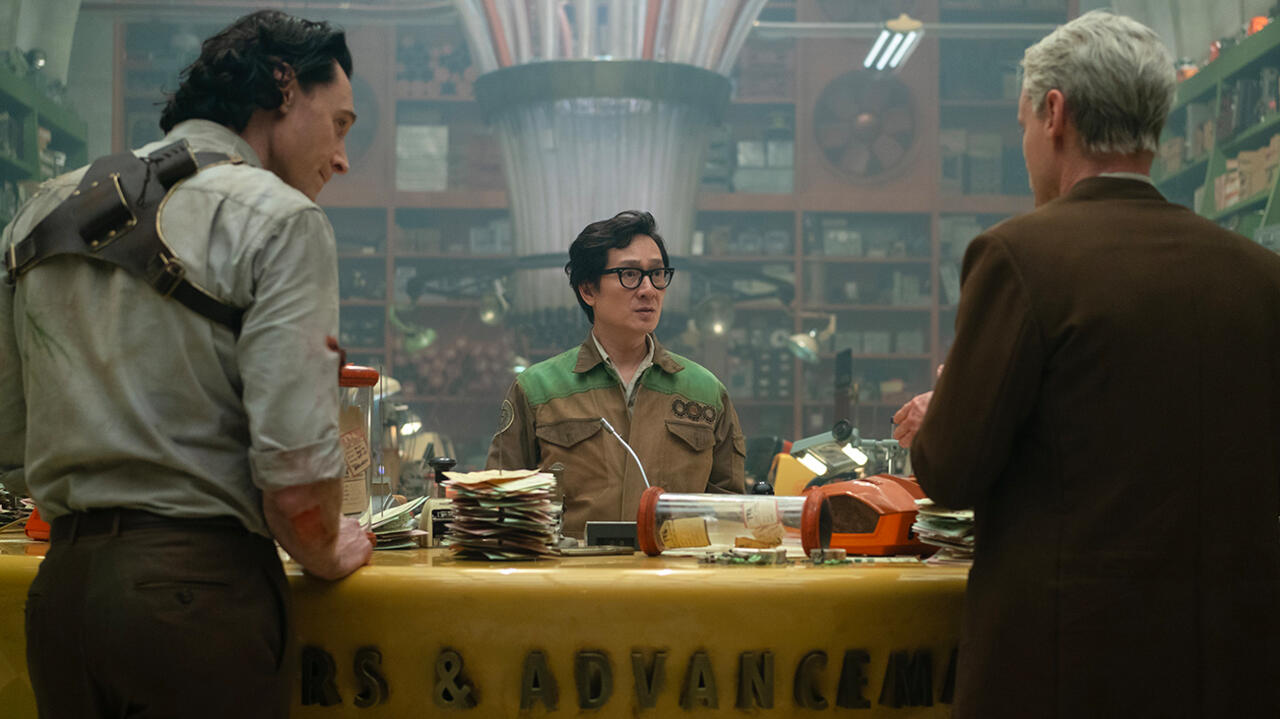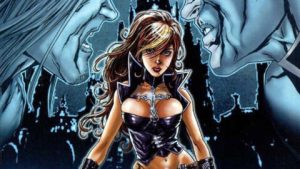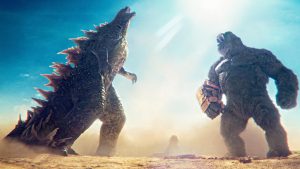The second season of Loki is an exemplary example of the state of the Marvel Cinematic Universe these days. As a production, it is flawless. It’s well done with even better production design than the first season, we have a brilliant cast without any annoying characters, and it doesn’t overdo the fake CGI sets. As a story, though, I can’t tell if it’s a carefully layered mystery or just a heavily rehashed MCU plot that ultimately means nothing.
After watching four of the six episodes of Loki season 2, I’m leaning towards the latter – but there are pieces for them to prove me wrong.
The series starts off on the wrong foot in this regard, as it doesn’t really address what was the cliffhanger from the end of Season 1. Oh, I have a pretty good theory — though I’ll skip spoilers for now — but it’s not answered in the episodes shown to critics.
Season 2 picks up directly from where the end of Season 1 left us, with Loki in a version of the Time Variance Authority that houses a giant statue of He Who Remains — and where Mobius and Hunter B-15 don’t recognize him. They quickly realize that Loki doesn’t belong and chase after him, but his body shrinks into nothingness and disappears.
And then he reappears on TVA from last season, with his friends Mobius and B-15 trying to figure out what to do about all the new timeline branches. But he can’t seem to stay in one place – Loki keeps popping in and out. He’s apparently time traveling to TVA’s past and future, or as the new character Ourobouros puts it, time slipping. But Ouroboros, who seems to know more about the mechanics of the TVA than anyone else alive, says that time-slip is not possible in the TVA.
Except it’s clearly happening. but Why? As for the state of the TVA (perceived or real) being changed to allow it, and why is this happening to Loki? Despite this being the first major storyline of the season, none of these questions are asked or answered in the four episodes we’ve seen.
It’s a little harsh at this point, but that’s par for the course for the MCU in recent years.
It’s likely that the remaining episodes will wrap things up. It might even be a reasonable expectation – as I mentioned earlier, I have theories that I feel good about because the pieces are there to make sense. But even if you don’t consider Jonathan Majors’ real-world legal issues that arose after the filming of these episodes and almost necessitated a revision of the story, the MCU deserves no doubt. After years of setting up many things and paying almost nothing.

It’s a huge disappointment because Loki Season 2 is a fantastic moment-to-moment experience. It looks great, flows very well and doesn’t use CGI as a crutch. Tom Hiddleston and Owen Wilson are delightful as Loki and Mobius this time around, and newcomer Ke Huy Quan steals the show as Ourobouros, who designed and wrote the manual for all the TVA technology. Sofia DiMartino’s Sylvia has a very different tone now that she’s freed from the life He Who Remains has forced her into – she works at a slower pace in Season 2, which is a nice little change.
Aesthetically, it’s nice that Season 2 isn’t as overtly dependent on CGI environments as Season 1 or the rest of the MCU. It’s certainly fun to return to the brutalist architecture of the TVA, but perhaps the most impressive parts for me came during the trip to 19th century Chicago in episode three. The adventure at the 1893 World’s Fair required a lot of CGI flavoring, but there are also plenty of vintage props used in these segments. And as a history nerd, I appreciated the effort.
But it is also in this episode that Majors takes center stage. The real-world issues of the Majors have been well-documented this year, and it’s impossible not to think about them while watching Loki Season 2, and in a variety of ways. Nothing happens in a vacuum in the MCU anyway, but that goes triple for everything involving Jonathan Majors. For example, trying to enjoy the performance of someone who has been accused of domestic violence is uncomfortable. And there’s an awareness that those accusations, which came after Season 2 was filmed, have affected the story not only in these episodes but also in the larger MCU, as an entire Avengers movie about his character is planned.
So I can sit here and say that Majors as Victor Timely, a version of He Who Remains – or possibly the original version in the MCU – gives a quirky and rather entertaining performance, or that his arc in episodes 3 and 4 is very interesting. A good counter to Angry Kang is from Ant-Man & the Wasp: Quantumania. These things are true, but saying them doesn’t tell the whole story.


That’s how it is when we’re dealing with the Majors, and it’s even more so for the MCU. It’s the most beautiful nerd franchise in the world, with huge production values in all kinds of wild and awesome sci-fi and fantasy. When you look at it from top to bottom, especially with something like Loki, which nails every aesthetic note it needs to, it’s easy to think that sentence sums it up.
But in our reality, Loki is a series that makes no reference to any part of the MCU except for Loki’s own past — that’s true of the four episodes of Season 2 that I’ve watched — and no other part of the MCU is made. even hidden references to the events of this series. The events that happen in this series are supposed to be important, but they don’t even manage to deal with the multiverse in any meaningful way – season 2 feels more like a show in time than a multiverse show.
People who aren’t concerned with the bigger picture will probably enjoy Loki Season 2 as much as they’ve enjoyed anything else in the MCU. For those of us who can’t bring ourselves to forget the dozens of movies and shows already on our timeline, it feels like another puzzle piece that just doesn’t fit. I hope I was wrong






